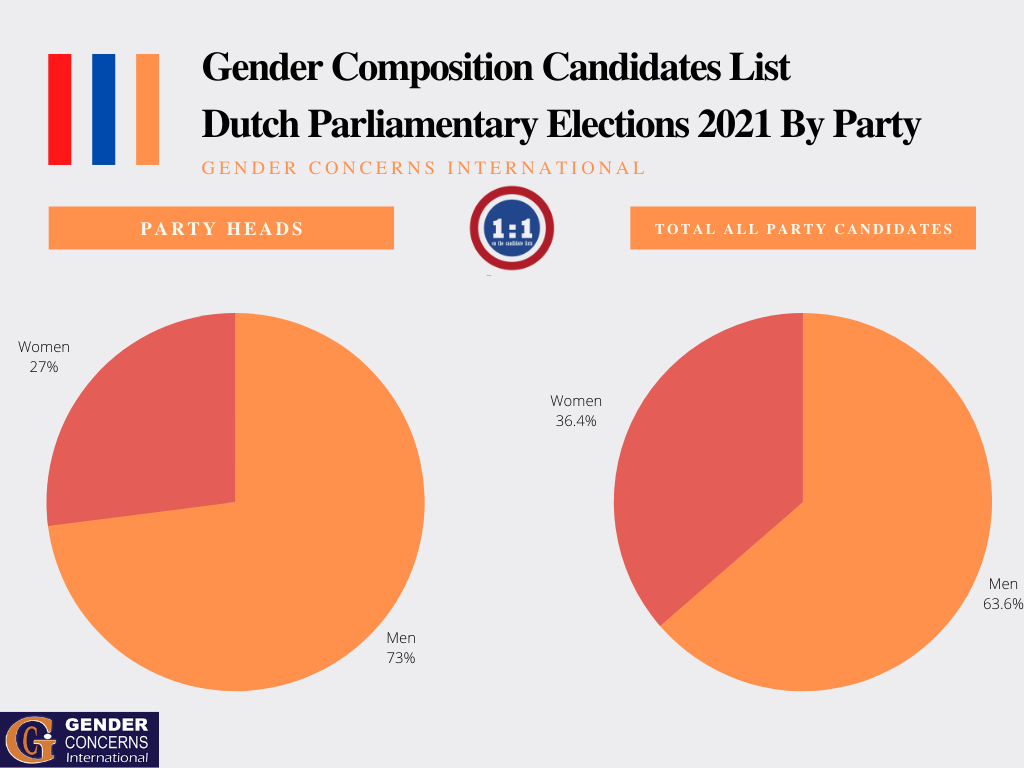1:1 - System Overhaul Needed for Gender Parity Governance
.jpg)
This month, the Dutch Kiesraad has completed the procedure to verify the candidacy lists of political parties, thereby also establishing which parties will compete during the parliamentary elections in March. In the end, 37 parties will be participating, an all-time record in The Netherlands. Moreover, 10 parties are led by women: 50Plus, BBB, BIJ1, D66, Lijst 30, NLBeter, Partij voor de Dieren, Partij van de Arbeid, SP and Splinter. This is also a record and these resilient women leaders should be praised.
A change is still necessary when it comes to the gender makeup of total nominees, for the majority of parties still has not managed to bring gender parity into their candidacy lists. For 31 parties, Gender Concerns International has investigated the gender makeup for their electable officials. The six parties that were not investigated either only had one person on their list (DFP), had not published a list on their website (Jezus Leeft, Modern Nederland, Trots op Nederland, Vrij en Sociaal Nederland) or demonstrated technical difficulty in loading the website (JONG). Out of the other 31 parties, 23 did not have a candidacy list that includes 50% women, while 14 parties did not even have 30% female candidates.
It is also worth noting that a female leader of a political party does not necessarily mean that there are more women on their candidacy lists. To illustrate: 50Plus and BBB are led by women, but are number 5 and 7 respectively on the list of parties with lowest percentage of women on their lists. Therefore, women must also be held accountable if their parties do not consolidate the rights and emancipation of other women.
Looking at the listing, it does raise the question of how we can bring more women into politics if women are underrepresented on candidacy lists. Currently, only D66, Splinter and Volt have a candidacy list with a 50/50 gender composition. Partij van de Arbeid, Partij van de Eenheid, GroenLinks, Partij voor de Dieren and BIJ1 have more women than men in their parties. Still, out of the 954 electable candidates reviewed by Gender Concerns International, only 347 (35%) are female. It is estimated that 6.6 million Dutch women are eligible voters (52% of total voters), but how will they be properly represented if they are only given ballots, rather than a space on the candidacy list? How will their voices be heard if they are not represented properly even before the votes are casted? This is why Gender Concerns International is actively engaging political parties to think about their lists critically and make sure that, in the future, their candidacy lists will have one woman for every man, making the ratio 1:1.
